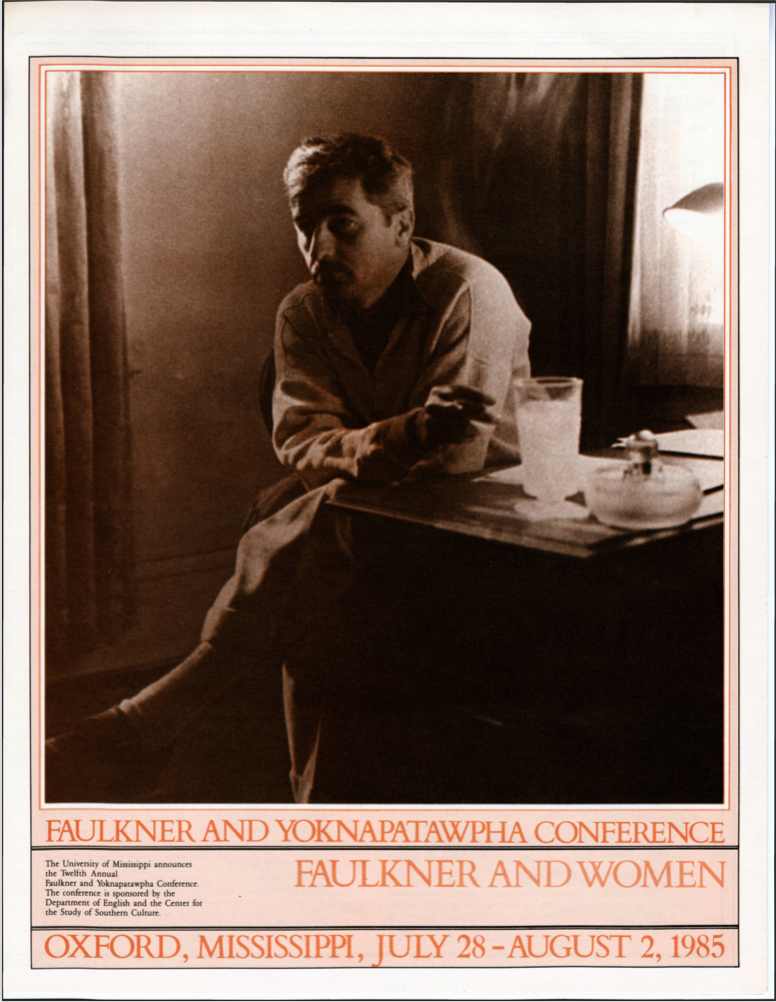
Faulkner and Womankind: "No Bloody Moon"
Location
Ole Miss Union Ballroom
Start Date
2-8-1985 9:00 AM
Description
In "An Odor of Verbena," the seventh and last written of the stories in The Unvanquished, the phrase "no bloody moon" appears three times. It is used twice by Bayard Sartoris’s young Aunt Jennie, quoting an Englishman, a Civil War blockade runner, and once by Bayard as he goes to face his father’s murderer. Explanations of its significance have been empirical as well as metaphorical, ranging from the practical need of a dark night for blockade running to the suggestion that Bayard redeems the South from dark, bloody killings of townsmen by townsmen. Since the phrase is used each time at crucial points in the action, which concerns Bayard's return home to avenge his father's murder, such explanations seem inadequate.
I suggest that "no bloody moon" stands for "no bloody woman," in this case the bloodthirsty Drusilla, who has ridden to battle with Bayard's father and who rejoices in Bayard's being able to kill his father's slayer with impunity. Just as verbena has been endowed since ancient times with magical qualities, so in myth the connection between the monthly cycling moon and women has always been close. "An Odor of Verbena," far from being a tall tale of Civil War heroism like the other stories in The Unvanquished, encompasses the legendary interpretation of the moon as man's nemesis, bloody woman
Relational Format
Conference Proceeding
Recommended Citation
Frazer, Winifred L., "Faulkner and Womankind: "No Bloody Moon"" (1985). Faulkner and Yoknapatawpha Conference. 25.
https://egrove.olemiss.edu/fy/1985/schedule/25
Faulkner and Womankind: "No Bloody Moon"
Ole Miss Union Ballroom
In "An Odor of Verbena," the seventh and last written of the stories in The Unvanquished, the phrase "no bloody moon" appears three times. It is used twice by Bayard Sartoris’s young Aunt Jennie, quoting an Englishman, a Civil War blockade runner, and once by Bayard as he goes to face his father’s murderer. Explanations of its significance have been empirical as well as metaphorical, ranging from the practical need of a dark night for blockade running to the suggestion that Bayard redeems the South from dark, bloody killings of townsmen by townsmen. Since the phrase is used each time at crucial points in the action, which concerns Bayard's return home to avenge his father's murder, such explanations seem inadequate.
I suggest that "no bloody moon" stands for "no bloody woman," in this case the bloodthirsty Drusilla, who has ridden to battle with Bayard's father and who rejoices in Bayard's being able to kill his father's slayer with impunity. Just as verbena has been endowed since ancient times with magical qualities, so in myth the connection between the monthly cycling moon and women has always been close. "An Odor of Verbena," far from being a tall tale of Civil War heroism like the other stories in The Unvanquished, encompasses the legendary interpretation of the moon as man's nemesis, bloody woman

